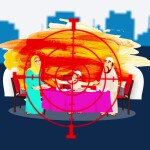An overview of the types of impure things (Najasaat) in Islam and their significance in maintaining ritual purity for prayer and other acts of worship.
In Islam, the concept of Najasaat refers to things that are considered impure or unclean, and Muslims must avoid them to maintain their ritual purity, which is essential for performing acts of worship like Salah (prayer). The term Najasaat encompasses various substances and conditions that affect a person’s state of physical purity. It is important to understand these impurities, as they have a direct impact on a Muslim’s ability to perform religious duties correctly.
Some of the main types of Najasaat include human excrement (urine and feces), blood, dead bodies of animals (except those slaughtered according to Islamic law), alcohol, and the saliva and sweat of certain animals such as pigs and dogs. These substances are considered impure and can render a person or an object unclean, requiring purification before one can engage in acts of worship. For example, if a person’s clothing or body becomes soiled with these impurities, they must perform Wudu (ablution) or Ghusl (full body wash) before performing Salah.
Islamic teachings emphasize the importance of cleanliness and hygiene, both for physical and spiritual well-being. While Najasaat are considered impurities, Islam also provides clear guidelines on how to purify oneself and remove these impurities. Washing with water or using other substances like soil or disinfectants can restore purity to the individual or their clothing. Additionally, objects or areas that become contaminated with Najasaat should be thoroughly cleaned before they can be used for prayer or other religious activities. By adhering to these practices, Muslims ensure that they maintain the necessary state of cleanliness to approach their acts of worship with respect and devotion to Allah.









